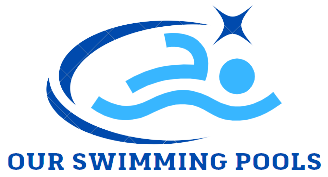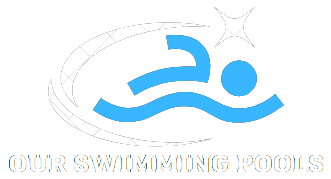Have you ever dreamed of having your own private oasis right in your backyard? A place where you can relax, unwind, and escape from the stresses of everyday life? If so, then you’ve probably considered getting a pool. But before you take the plunge, it’s important to ask yourself, “how much do optimum pools cost?” After all, a pool is a significant investment, and understanding the costs involved can help you make an informed decision.
The cost of an optimum pool can vary depending on a variety of factors, including the size, shape, and features you choose. From sleek and modern lap pools to luxurious infinity pools with stunning water features, the options are endless. But with so many choices, it’s easy to feel overwhelmed. That’s why in this article, we’ll break down the average cost of an optimum pool, as well as factors that can affect the price. So grab your sunscreen and let’s dive in to explore the world of optimum pools and their costs.
Optimum pools cost vary depending on factors such as size, materials, features, and location. On average, an Optimum pool can cost anywhere from $20,000 to $60,000 or more. It’s best to consult with a pool contractor to get an accurate estimate based on your specific requirements and preferences.
How Much Do Optimum Pools Cost?
Optimum pools are a popular choice for homeowners looking to enhance their outdoor living space. These pools offer a range of benefits, from increased property value to a refreshing place to relax and unwind. However, one key consideration for anyone considering an optimum pool is the cost. In this article, we will explore the factors that influence the cost of optimum pools and provide you with a step-by-step guide to help you determine how much you can expect to spend.
Factors Affecting the Cost of Optimum Pools
Several factors contribute to the overall cost of an optimum pool. Understanding these factors will help you make informed decisions and ensure that you stay within your budget.
1. Size and Shape: The size and shape of your desired pool will have a direct impact on its cost. Larger and more complex designs will require more materials and labor, resulting in a higher price tag. Additionally, features such as custom shapes or vanishing edges can increase costs further.
2. Material Selection: The materials used for your optimum pool will also influence the cost. There are various options available, including concrete, fiberglass, and vinyl. Each material has its advantages and price points. Concrete pools tend to be more expensive due to their durability and customization possibilities, while fiberglass and vinyl pools offer more affordable alternatives.
3. Additional Features: Optimum pools can be customized with a range of additional features, such as waterfalls, lighting, or heating systems. These features will add to the overall cost of your pool. It’s important to consider which additions are essential for your needs and budget.
Step-by-Step Guide to Determining Optimum Pool Costs
Now that you understand the factors influencing the cost, let’s break down the steps to help you determine how much an optimum pool will cost you:
Step 1: Define your pool requirements: Determine the size, shape, and features you desire for your pool. Consider your space limitations, budget, and usage preferences to narrow down your requirements.
Step 2: Research local pool builders: Look for reputable pool builders in your area and gather information about their experience, portfolio, and customer reviews. Compare their pricing and services to find the right fit for your project.
Step 3: Request quotes: Contact the pool builders you have shortlisted and request detailed quotes based on your pool requirements. Ensure that the quotes include all necessary components, such as excavation, equipment, and installation.
Step 4: Evaluate the quotes: Review the quotes you receive and compare them based on cost, materials, warranties, and additional services offered. Take note of any variations in pricing and seek clarification if needed.
Step 5: Consider ongoing costs: Keep in mind that owning a pool comes with ongoing maintenance and operational costs. Factor in expenses such as water treatments, electricity for pumps, and regular cleaning when determining the overall cost.
Step 6: Make an informed decision: Once you have gathered all the necessary information and evaluated the quotes, weigh the pros and cons of each option. Choose the pool builder that meets your requirements and offers the best value for your investment.
By following these steps and considering the factors mentioned earlier, you can determine how much an optimum pool will cost you. Remember to plan and budget accordingly to ensure a smooth and enjoyable pool installation process.
Frequently Asked Questions
Optimum pools are a popular choice for homeowners looking to create a relaxing and enjoyable outdoor space. If you’re considering installing an optimum pool, you may have questions about the cost. Here are some commonly asked questions and answers to help you understand the pricing of optimum pools.
1. How much do optimum pools cost?
The cost of an optimum pool can vary depending on various factors such as the size, shape, features, and materials used. On average, the cost of an optimum pool can range from $30,000 to $70,000 or more. It’s important to note that additional expenses such as landscaping, decking, and accessories are not included in this estimate.
Factors that can affect the cost include the complexity of the pool design, the type of materials used for construction, the location of your property, and any additional features or upgrades you choose. It’s recommended to consult with a professional pool builder to get an accurate cost estimate based on your specific requirements.
2. What factors contribute to the cost of an optimum pool?
Several factors can contribute to the cost of an optimum pool. The size and shape of the pool play a significant role, as larger and more complex designs will generally cost more. The choice of materials, such as fiberglass, vinyl, or concrete, will also impact the cost. Additionally, features like waterfalls, slides, lighting, and heating systems can add to the overall expense.
The location of your property can also affect the cost, as factors like accessibility, ground condition, and local building regulations may influence the construction process. It’s essential to consider these factors and discuss them with a pool builder during the planning stage to get an accurate estimate of the cost.
3. Are there any ongoing costs associated with owning an optimum pool?
Yes, owning an optimum pool comes with ongoing costs. Regular maintenance, including cleaning, chemical balancing, and filter replacement, is necessary to ensure the pool remains clean and safe to use. The cost of these maintenance tasks can vary depending on factors such as the size of the pool and the quality of the water.
Additionally, there will be utility costs for running the pool equipment, such as pumps and heaters. These costs will depend on factors like the frequency of use and the local energy rates. It’s important to budget for these ongoing costs when considering the overall expense of owning an optimum pool.
4. Can I finance the cost of an optimum pool?
Yes, it is possible to finance the cost of an optimum pool. Many pool builders offer financing options to help homeowners spread out the expenses over time. The terms and conditions of financing will vary depending on the builder and your financial situation.
Before deciding on a financing option, it’s essential to consider the interest rates, repayment terms, and any additional fees or charges. It’s also a good idea to compare multiple financing options and choose the one that best suits your financial needs and goals.
5. Can I get a cost estimate for an optimum pool without committing to a purchase?
Yes, most reputable pool builders offer free cost estimates for potential customers. These estimates are typically provided after an initial consultation where the builder assesses your requirements and preferences. The cost estimate will give you an idea of the expected price range for your desired optimum pool.
During the consultation, it’s essential to discuss your budget, desired features, and any specific requirements you may have. This will help the pool builder provide a more accurate cost estimate tailored to your needs. Keep in mind that the estimate may change based on any changes or additions made to the original plan.
In conclusion, determining the cost of an optimum pool requires careful consideration of various factors. From the initial design and construction to ongoing maintenance, there are several expenses involved in creating and maintaining the perfect pool. It is crucial to establish a budget and prioritize features and materials according to your needs and preferences.
While the cost of an optimum pool can vary widely depending on individual choices and circumstances, it is important to remember that investing in a high-quality pool can provide immense value and enjoyment for years to come. By consulting with experienced pool builders and considering long-term costs, you can ensure that the investment you make in your pool is well worth it. So, take the time to research and plan, and soon you will be diving into the refreshing waters of your very own optimum pool.


















